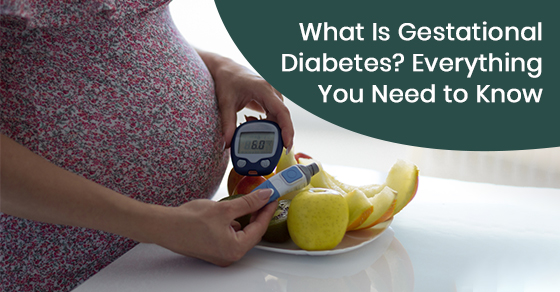Pregnancy can be a challenging but rewarding time, filled with many changes you may not have been expecting as a woman. One issue which can arise during pregnancy is gestational diabetes. If untreated, this form of diabetes can negatively impact you and your baby. With nearly 9% of all women developing gestational diabetes during pregnancy, doctors must diligently monitor it.
As a leading birth injury lawyer in Regina, Sommers, Roth and Elmaleh work with families for many reasons, including issues relating to gestational diabetes. You must understand what gestational diabetes is and how it can impact your pregnancy and delivery. Here is what you should know.
What is gestational diabetes and how did I get it?
Diabetes is a disease that impacts the hormone insulin. Insulin is created naturally by your pancreas and works to stabilize your blood sugars. People with diabetes either do not produce enough insulin naturally or are unable to use their insulin the way it should be used to normalize blood sugars—that results in high blood sugar, which has severe health risks.
There are various types of diabetes. Gestational diabetes occurs during weeks 24-28 of pregnancy and thus only affects women. It is thought that gestational diabetes may occur due to the changing hormones in a pregnancy body.
During pregnancy, hormones from the placenta may impact the mother’s hormones, including insulin. When insulin hormones are blocked from performing, blood sugar levels rise and affect organs and other internal systems.
If you develop gestational diabetes, you may have no physical symptoms, so it is vital to be conscious of your body and receive regular medical checks and bloodwork. Some common symptoms, if you do experience them, include:
- Urinating more than usual (even more than usual while pregnant)
- Feeling thirsty all the time
- Being overtired and fatigued
Your doctor may also notice sugar in your urine tests, which is a sign that gestational diabetes could be an issue.
Suppose you or your child are affected negatively by gestational diabetes because of a medical professional’s negligence. In that case, you should contact a birth injury lawyer as soon as possible.
Will I get gestational diabetes?
Due to the abnormal activity of hormones during pregnancy, some women develop gestational diabetes without any additional causes or risk factors. However, some things could increase the chance of gestational diabetes, such as:
-
Age
As we age, our chances for a healthy pregnancy begin to diminish. Fortunately, modern medicine has made it possible for women at many ages to conceive and deliver naturally. However, for women age 35 and older, the risk of developing gestational diabetes is higher.
-
Weight
Like age, our weight plays a role in our overall physical health, including our hormones’ health. Research has shown that women with a BMI of thirty or higher have increased gestational diabetes during pregnancy. This likely has to do with the reaction of insulin to fat and blood sugar.
-
Other diabetes diagnoses
If you have been diagnosed with any type of diabetes in the past, including pre-diabetes, your risk of gestational diabetes increases.
If any of the above risks relate to you or your current pregnancy, you should talk to your doctor about gestational diabetes. It is the job of your physician to check blood and urine samples for this illness.
Treating Gestational Diabetes
As a birth injury lawyer in Regina, we understand that the thought of developing something like gestational diabetes is stressful. Fortunately, treating gestational diabetes is less daunting than you think. In most cases, your doctor will recommend a nutrition and exercise plan to counteract the blood sugar levels you are experiencing. In extreme cases, you may require insulin shots, but this is very rare in cases of gestational diabetes.
Your doctor will closely monitor the situation as it unfolds, and you may find that your gestational diabetes does not last the length of your pregnancy. Some women may see it disappear as mysteriously as it came, while others may still cope with it.
How Does my Doctor Determine Whether I Have Gestational Diabetes?
Physicians test for gestational diabetes with something called a glucose test. There are a few different glucose test types, the first being a 3-hour test that monitors your body’s reaction to a sugary drink. This helps your doctor see if your insulin is working or if the glucose in the drink negatively affects your blood sugars.
If your blood sugar levels spike during your initial glucose test, a doctor will call for a second test. This next test requires you to drink more glucose, usually 100mL, while the first only requires 50mL. The first test also does not require you to fast before the test, while the second needs to read your fasting blood sugar level before you sip the sugary drink. During test number two, your doctor will check blood sugars hourly for three-hours to see how much of an impact glucose has on your blood and how your insulin is responding.
Why Do I Need a Birth Injury Lawyer in Regina
Regina has some of the top physicians in Canada, but sometimes accidents still happen. There is nothing worse than learning as a new parent that your child may have complications due to pregnancy complications. Gestational diabetes, if left untreated, could harm your child and leave you with no financial support to provide your baby with the additional medical support he or she needs.
Working with a birth injury lawyer ensures you receive the support and financial retribution owed to you if your child suffers due to your physician’s negligence or malpractice.
To learn about your right as a patient who has been mistreated following a diagnosis of gestational diabetes, call Sommers, Roth and Elmaleh at +1 844-777-7372 or contact us here.

